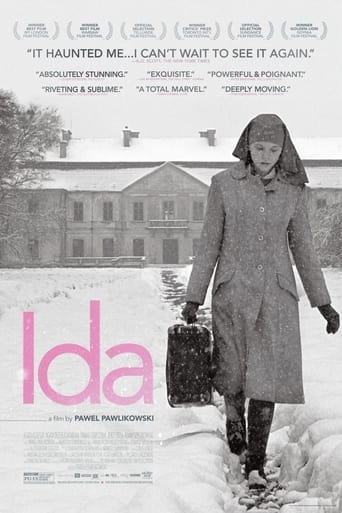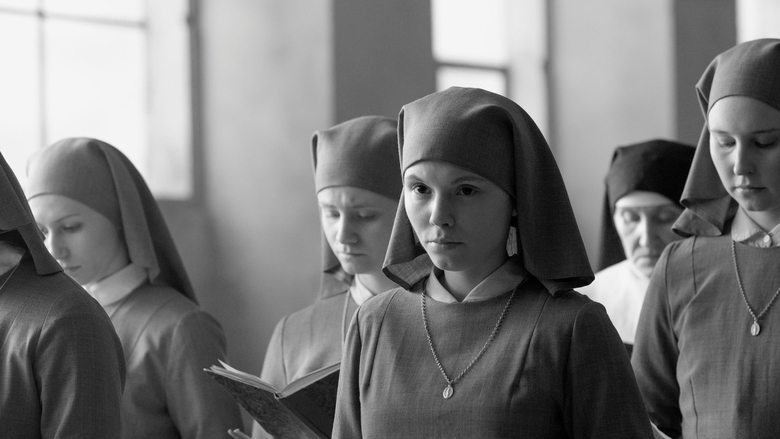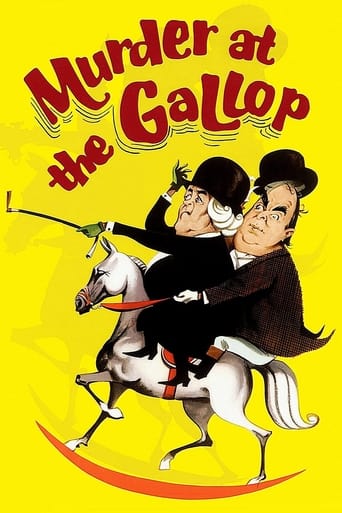Ida (2014)
Anna, a young novitiate in 1960s Poland, is on the verge of taking her vows when she discovers a family secret dating back to the years of the German occupation.
Watch Trailer
Cast


Similar titles
Reviews
Very very predictable, including the post credit scene !!!
To me, this movie is perfection.
Pretty Good
A clunky actioner with a handful of cool moments.
This movie was so simply shot. The black and white made it seem more realistic for the time it was set in and the simplicity of the shots meant there was nothing distracting you from the story.It is in the story that the simplicity moved away. I don't mean it was hard to follow, on the contrary, it was quite easy to understand what was going on. I mean more there was layers upon layers of context that will require multiple watches to get the full understanding, though the basic understanding the first watch gives you is still a satisfying amount.
I had high hopes for this movie as this movie won an Oscar. However it doesn't deserve it. There were hundreds of movies that year which should have won it. It is shockingly boring, too short and too slow. Not to mention that the whole story is an insult to Polish efforts for saving jews from German occupied Poland. Poland was the only country during ww2 that didn't collaborate with either Germans of Russians. According to Wikipedia Estimates the number of Poles involved in rescue at up to 3 million, and credit Poles with saving up to around 450,000 Jews from certain death.The rescue efforts were aided by one of the largest anti-Nazi resistance movements in Europe, the Polish Underground State and its military arm, the Armia Krajowa. Supported by the Polish government-in-exile, these organizations operated special units dedicated to helping Jews; of those, the most notable was Żegota Council based in Warsaw with branches in Kraków, Wilno and Lwów.Polish citizens were hampered by the most extreme conditions in all of German-occupied Europe. Occupied Poland was the only territory where the Germans decreed that any kind of help for Jews was punishable by death for the helper and their entire family. Of the estimated 3 million non-Jewish Poles killed in World War II, up to 50,000 were executed by Nazi Germany solely as penalty for saving Jews.After the War most of this information was suppressed by the Soviet-installed satellite regime in an attempt to discredit Polish prewar society and its wartime government as reactionary.
Ida is a beautiful film. Set in post-war Poland, the state of the environment is rather bleak. Shots rarely contain more than three people at once, and all sounds excluding a beautiful Bach piano piece played at the end is diegetic. The sets are dirty yet minimalistic, giving it a view of a city which looks lived in. The film follows Ida, or Anna by her Christian name, as she leaves the Convent where she was raised to meet her aunt, Wanda, for the first time. Wanda is played by Agata Kulesza, who makes her feel like a human who has lived a full and complex life, much like our own, instead of a life built strictly within the context of the film. She's a Jewish (albeit atheist), aging, single alcoholic who spends her days mindlessly filling her internal void through sex. This is in stark contrast to the young Ida who spends her days repetitively worshipping god, in preparation to take her vows. Their conflicting values are showcased several times throughout the film in interesting ways. Wanda asks if Ida ever has sinful thoughts of carnal love, to which Ida replies with a no. Wanda replies "That's a shame. You should try, otherwise what sort of sacrifice are these vows of yours?". This is the primary theme of the film. We soon learn Wanda had a child, but her boy was killed during the war for being Jewish, but Ida survived. Wanda has now experienced an example of the theme. She has undoubtedly contemplated suicide prior to the film's beginning, but as she learns more of her loved ones past, she is now able to take her life after experiencing fully what life has offered and with the more knowledge of what life has in store for the future. Unfortunately, she now knows that the sacrifice of suicide is hardly a sacrifice, as she has no future. Her life is, in a way, already over. Wanda kills herself. As Ida returns to the convent, she no longer feels confident in taking her vows. Ida knows she hasn't the slightest clue what she'll be sacrificing, realizing Wanda was right in her prior comment. Or was she? It's a philosophical question for you to decide. Ida chooses to abandon the convent in search of knowledge. The same knowledge Wanda achieved: What sacrifices will my decisions entail. So Ida smokes, drinks, abandons her Habit (Christian hood), and even takes a lover in a young musician. The musician offers her a wonderful life, yet the next day she arises not to accept his love but to yet again leave. The film ends with the first non-diegetic music, as a stunning shot of Ida is shown walking to a destination unknown to the viewer. I believe she chose to go back to the convent, now certain what her sacrifice will entail and ready to take her vows. This is Ida. 80 minutes of stunning black&white cinematography which could truly be screen shotted at any moment and made into a wallpaper. The story is not complicated, fast paced, or modern. It's more reminiscent of Bergman's Wild Strawberries. It's calm, quiet, yet meaningful and elegant. It's a perfect film. 10/10.
Well, I do have to give Polish director, Pawel Pawlikowski credit for 2 things in regards to this mind-numbingly bleak tale about a novice nun's change of heart - And that credit goes to - (1) The very effective use of stark, b&w photography. Yes. At times this sort of camera-work was actually quite impressive to behold.(2) Not going completely cliché with this film's excruciatingly slow-paced story and turning it into a Romeo & Juliet picture. 'Cause, believe me, with the introduction of the Lis character into this miserable, little tale, I was certain that we were all in for yet another reworking of Shakespeare's tale of tragic, star-crossed love (post-WW2 style). But, thankfully director Pawlikowski spared us this torture.What makes this truly morbid (and equally depressing) film such a contrast to American films is that if you're waiting for something/anything to actually happen, then you're gonna have to be awfully patient - 'Cause everything in Ida's story is offered up in such small, miserable portions. And this, in turn, is bound to leave the viewer, for the most part, quite dissatisfied.In conclusion - When it comes to "entertainment value", this is definitely the sort of film that requires that the viewer cut it a lot of slack, and, in doing so, not expect to get any joy out of its story in return.



















